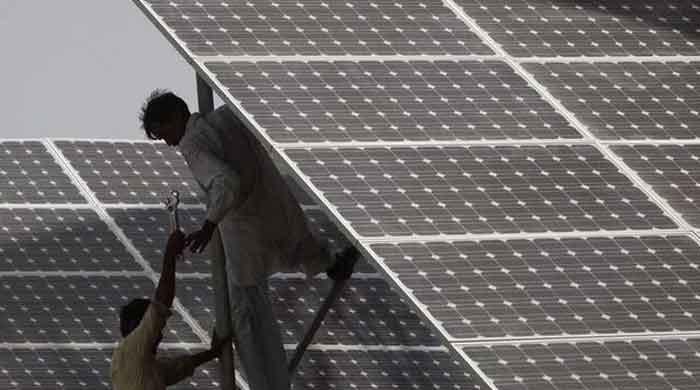Despite the absence of a comprehensive legal framework, significant global investment, or a prime ministerial declaration of a green revolution, Pakistan emerged as a leading global importer of solar panels by the close of 2024.
The nation, grappling with economic difficulties and widespread energy deprivation, is currently experiencing an unforeseen triumph in the realm of clean energy.
According to Ember’s Global Electricity Review 2025, a UK-based energy think tank, Pakistan has risen to prominence in the global solar market, with imports reaching 17 gigawatts in the past year alone.
This increase signifies a doubling of the import volume compared to the preceding year, establishing Pakistan as a major global consumer of solar panels.
The magnitude of Pakistan’s imports is particularly noteworthy, as it is not the result of a government initiative or large-scale utility deployment.
Instead, the majority of demand appears to stem from rooftop solar installations by households, small enterprises, and commercial entities seeking more economical and dependable electricity solutions in response to frequent power disruptions and escalating energy expenses.
Ember’s report indicates that rooftop solar installations in residential and commercial properties across the nation have surged as a “means of accessing lower-cost power.” This assessment is supported by Pakistani experts.
Muhammad Mustafa Amjad, Programme Director at Renewables First, suggests that the solar boom is best understood as a “survival response” by individuals and businesses “increasingly being priced out of the grid due to inefficient planning and unreliable supply.”
He further noted that it “marks a structural shift in how energy is perceived in Pakistan.”
Amjad stated that Pakistan’s solar panel imports in fiscal year 2024 alone are equivalent to approximately half of the national peak power demand.
He added, “Rooftop solar is rapidly becoming the preferred energy provider,” and “the role of the grid has to massively adapt in order to remain relevant in a fast-transitioning energy economy.”



Comments (0)
No comments yet. Be the first to comment!
Leave a Comment